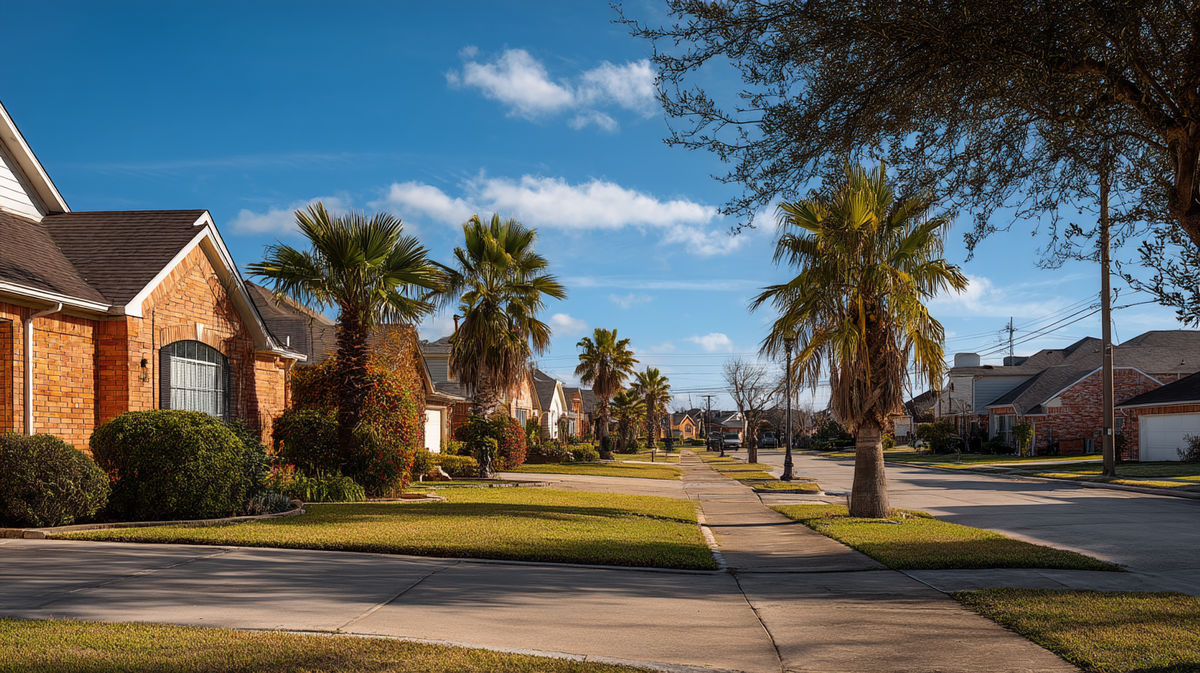Categories
Texas CityPublished November 2, 2025
Understanding the Property Tax Rate in Texas City, TX

Understanding the Property Tax Rate in Texas City, TX
Texas City hugs the Gulf Coast, sandwiched between Houston’s sprawl and Galveston’s beaches, and its property tax scene reflects that blend of industry and salt‑air suburbs.
If you’re scrolling through listings for homes for sale in Texas City, you’ve probably paused to ask, “What will I pay in property taxes?”
Savvy buyers, investors, and long‑time property owners all juggle the same puzzle: the tax rate on each taxable dollar of an appraised value set by the central appraisal district drives your yearly bill.
Stick with me while we break down the numbers, the people who levy them, and the ways locals trim the tab.
What Is the Property Tax Rate in Texas City, TX?
The Current Texas City, Texas Property Tax Rate
Texas property tax bills come from a stack of local taxing units.
For the current year, the pieces look like this: the City of Texas City sits at roughly 0.49 per $100 of assessed value, Galveston County chips in about 0.3419, and Texas City ISD brings the school bite to 1.1005.
When you add those together, plus slivers from the College of the Mainland junior college district or a special drainage district, the blended rate lands near 1.93 percent of a property’s value.
Recent Trends and Changes
Over the past few years, county and school officials have trimmed their portions a few pennies at a time, while the city rate has hovered in the high‑forties.
The Galveston Central Appraisal District lists a five‑year slide in the county rate from 0.5161 to 0.3419, and the ISD trimmed roughly six cents between 2023 and 2024.
How Property Taxes Are Calculated in Texas City
Basic Property Tax Formula
Every taxing unit uses the same math: Assessed value × property tax rate = annual property tax.
Sounds simple, but the pieces shift.
Your assessed value comes from the appraisal roll that the appraisal district files each spring, and the rate resets every fall when local officials adopt a proposed tax.
How Assessed Value Is Determined
The Galveston Central Appraisal District, locals just call it Galveston Central, is responsible for determining the market value of every house, lot, and storefront in town.
Appraisers read recent sales, run cost models, and visit neighborhoods to set a number on January 1 each year. Their job, spelled out in the Texas Property Tax Code, is to nail fair market value, not what you paid last July.
Common Exemptions Available
Texas law hands out a few solid ways to shave your bill before it ever leaves the Galveston Central Appraisal District.
The starter break is the general homestead exemption. If the house in Texas City is your primary residence on January 1, the school district automatically lops $100,000 off the appraised value, and the city can chop up to twenty percent more if it chooses.
Hit age 65 and the perks stack. You keep the homestead cut, then the school slice drops another $10,000 and the tax it charges freezes at that dollar figure for good. Same deal if you qualify as disabled under Social Security rules—the freeze locks your school line so it can’t climb even when values rise.
Veterans get extra muscle. A service member rated at one‑hundred‑percent disability enjoys a total exemption on the residence, wiping out every local tax layer from city to junior college. Partial‑disability vets can snag smaller discounts, and surviving spouses usually inherit whatever level the veteran earned.
Remember, none of these deals applies by magic. You file a one‑page form with the county appraisal office and toss in proof, including a driver’s license for homestead, award letters for veteran status, and birth date for the over‑65 break.
Do it once, keep it current, and watch your property tax bill flex a little lighter every year.
Example of a Property Tax Bill in Texas City
Median Home Price Scenario
Zillow pegs the median home at about $229,325.
Plugging that into our formula, the owner faces roughly $4,430 before exemptions.
How Exemptions Affect the Final Amount
Apply the general homestead, and the taxable value drops, slicing the annual hit to around $3,500.
Add an over‑65 cap and the tax burden dips further; those caps keep increases tame even when property values spike.
Who Sets the Property Tax Rate in Texas City?
Local Taxing Authorities
Four boards steer the wheel: the Texas City Commission handles city taxes; Galveston County governments adopt county and road rates in open meetings; Texas City ISD trustees lock in the school portion; and special districts—from drainage to fire protection or municipal utility zones—tack on pennies for targeted local services.
The Budgeting and Rate‑Setting Process
Each summer, the entities post a Truth in Taxation notice on the county’s portal and on Texas.gov, showing last year's taxes, proposed tax rates, and the amount of taxes they plan to levy.
Residents can ask questions about their property value or the budget itself before the final vote.
How Texas City’s Property Tax Rate Compares to Nearby Areas
Comparison with Neighboring Cities
Texas City’s city slice at 0.49 outpaces League City at 0.369 and Dickinson at 0.3682, but it’s higher than Galveston proper at about 0.4089 and lower than Houston’s roughly 0.52.
School and county layers tilt the final stack, yet the Gulf community still sits mid‑pack among cities in the county in Texas that share shoreline.
Factors That Influence Rate Differences
Age of infrastructure, hurricane‑ready drainage, and how much each city counts on sales taxes shape municipal needs, while richer tax bases over in Harris County let Houston lean on higher values even with a lower rate.
School construction, pension obligations, and bond debt all push rates up or down across local taxing units.
How to Lower Your Property Tax Bill in Texas City
Filing for Exemptions
Grab Form 50‑114 and a copy of your driver’s license, then send it via mail or through the online portal before April 30 to the Galveston County Tax Office at its main office location on Moody Avenue, no more post office boxes.
The staff can look up your account number and explain any tax statements.
Protesting Property Tax Appraisals
If you think the appraised value overshoots, file a protest with the appraisal review board within 30 days of the notice. Bring sales comps, repair estimates, or photos, and remember the hearing is informal.
Homeowners who win usually shave five to ten percent off the property appraisal.
Using a Tax Consultant or Protest Service
Plenty of firms will protest for you, often taking a slice of the saved property tax payments. Make sure they’re reputable and verify how they handle your mortgage company escrow if they snag a reduction after your lender has already sent payment.
Property Taxes and Home Affordability in Texas City
Monthly Payment Impacts
Escrow rolls the property tax bill into the house note, so every $1,000 in annual taxes adds about $83 to the monthly payment.
Factor that in when you calculate how much you can pay in property taxes alongside principal, interest, and insurance.
Why Investors Should Pay Attention
For landlords, taxes cut straight into cash flow. A duplex with high city taxes but strong rent may still beat a cheaper local property tax area with weak demand. Smart investors watch the county’s Truth in Taxation website each August to see whether a hike is coming before an offer.
Final Thoughts on Texas City Property Tax Rates
Key Takeaways for Homeowners
Property taxes fund local government essentials, from streetlights to junior college districts and special taxing units, but they also shape your budget.
Knowing how the taxing unit mix works, monitoring each year's taxes, and claiming every exemption keeps your costs predictable.
Stay Informed and Proactive
Check the Truth in Taxation portal each fall, skim budget agendas, and never ignore an appraisal notice.
A five‑minute form or a quick protest can carve hundreds off the amount of taxes you owe, and that savings feels sweeter than a sunset over Galveston Bay.
If you still have questions about your property, ring the county at 409‑766‑2481 and keep your levy in line with the true value of your property.
Frequently Asked Questions About Texas City Property Taxes
When are property taxes due?
Statements hit mailboxes in October, and they become delinquent on February 1 if unpaid after January 31. Late payers rack up penalties and interest that can climb past 15 percent in a few months.
Can my property taxes go up every year?
Yes. Even if the property tax rate drops, rising property value on the appraisal roll can lift the final bill.
State law caps appraisal growth at ten percent for homesteads, but other parcels rise with the market.
What happens if I don’t pay my property taxes?
The county can place a lien, tack on more interest, and eventually start a tax collection suit that leads to a sheriff sale. Investors sometimes pick up those parcels, and the former taxpayer may lose the home.
Where can I pay my property tax bill?
You can pay online through the Galveston County tax office portal, drop a check at a branch, or mail payments to the Moody Avenue counter. Credit card, e‑check, or in‑person cash all work.





